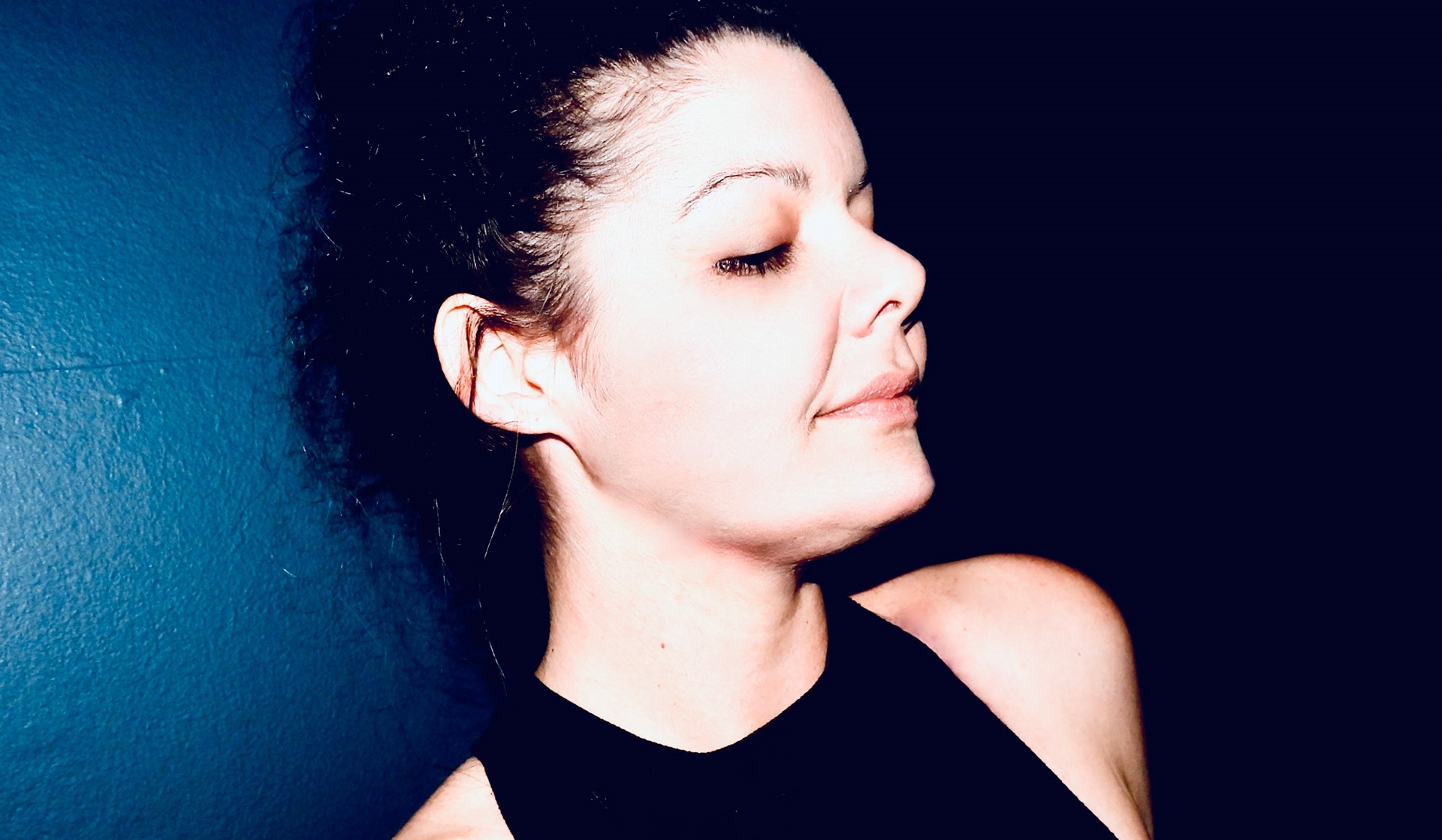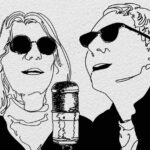
As the daughter of Peter Lewis, founding member of Moby Grape, Arwen Lewis brings a rich blend of musical heritage and creativity to her latest EP. In this interview, Arwen offers insight into the inspiration behind her work, the collaborative process, and the lessons she’s learned from her family’s legacy.
Your latest EP, Under The Stars, features both self-penned songs and covers. How did you approach blending your own voice with the work of artists like Jackson Browne and Joni Mitchell?
Once the music was arranged and recorded for both my version of Doctor My Eyes and I Think I Understand, I sang the lyrics in a way that I felt naturally blended, harmoniously, with the tracks . I think when an artist sings with any type of music, the natural timbre of that music evokes tones in the artist’s voice, phrasings, and emotion that harmoniously and naturally blend with the music, that is what my experience has been.
“Doctor My Eyes” is trumpet driven. What led you to recording your own version and how did you envision this unique arrangement?
I was listening to the song one evening when I was cooking dinner, and I found myself singing along with it and feeling moved in a groovy sense, and I thought, hey, I’d love to record this song! Soon after, my co-producer, Jonathan McEuen, recorded a basic chord progression on keys (not the same as the piano riff that Jackson Browne plays) … and from there, Jonathan tried a slide guitar part that we ended up liking, and when I heard those parts with the bass, I felt that trumpet would make it Jazzy and compliment the keys an slide nicely. From there, the legendary Jeff Elliott put a trumpet part on the track, and we finished it with some hand claps (featuring myself, Jonathan, Graham Palmer – the engineer of this project, and Jeff).
“Man on the Moon” carries a sense of wistful longing. What inspired this song, and how does it connect with your personal experiences?
Man on the Moon is a song, written in metaphorical and literal meaning, about the deep mystery of faith and spirituality, and God. The truth of it all has never literally and completely been proven, or dis-proven, yet it’s a profound philosophy. I’ve always felt this is a beautiful topic to explore, and in my personal opinion, I believe that a person’s faith, or lack of it, can have a profound effect on the way life is experienced, and what’s made of it. I was inspired to use the imagery of the stars and the moon and light, because of the literal, physical beauty of our sky, and because I believe that in the cosmos is where spirituality is rooted. We know a lot, but we’re in an infinite universe full of vast mystery and uncertainty, so, what’s to say that there isn’t a power, or God, or spirit, that determines our experience in this world?
The EP’s creation was described as an organic process with Jonathan McEuen mentoring and arranging. How important was that collaborative experience for you?
Jonathan’s musicianship is a large part of the foundation of this project. Because he is so versed and virtuosic as a musician, he was able to bring the music to life in a way that best expressed my vision. He gave me complete creative control, but offered ideas that I would not have come up with on my own. My experience collaborating with him showed me a unique approach to creating and playing music, and when any artist creates music with a collaborator in that way, usually it becomes part of their musical subconscious, or language. That experience is invaluable to me as a musician and an artist.
“Winter” appears in two different arrangements on the EP. What led to this decision, and what different emotions or interpretations do each version convey?
I have had the song Winter for quite some time. I wrote the lyrics and chord progression years ago, but never felt I had found the right tempo for the song, or melodic composition in the instrumentation. It was, I believe, the first song we worked on for Under The Stars. First, we slowed the music down to a much slower tempo than I had originally. Jonathan sat with the song, and wrote the dark and haunting western guitar part. When I heard that, it made my heart sing. It reminded me of The White Stripes, who are my favorite band, and I approached singing it like Lana Del Ray might, one of my favorite vocalists. This version is, I would say, an homage to some of my favorite musicians, whereas the alternative version is a more pure expression of my spirit as an artist.
The alternative version was not something that was planned, but may be the truest musical expression for the spirit of this song, in my opinion. I was sharing a show bill with an artist named Jason Achilles and he was accompanying me on a few songs, one of which was Winter. He had composed a piano part for that performance, and that was during the time that Under The Stars was being created. I felt it was a very beautiful piano part, so I asked if he’d record it for an alternative version. Once the piano and vocal were finished, Jason suggested cello, so I connected to a cellist named Angus Cooke who played the beautiful and haunting cello.
You’ve worked closely with your father, Peter Lewis of Moby Grape. What are some of the most valuable lessons he’s taught you about music and life?
My father is another virtuosic artist and musician, who is, in many ways, incomparable and of his own. Some of the most valuable lessons about music that I have learned from him are about chord structure and chord inversions, song arrangement, playing in a rock band/playing with other musicians, the benefits of being able to self-record and use recording devices to edit and create songs. I think I naturally inherited my approach to lyricism and my artistic mind from him. About life, he’s taught me of the importance of each person and being in this world, and about having faith in what brings me joy, even if making that part of my reality seems out of reach… that I will always have my art and my music as a place of solace, as every artist does. It wasn’t necessarily reasonable for me to pursue music professionally at such a late age, but now that I have, my abilities that my father encouraged me to develop will be with me forever.
You’ve covered Moby Grape songs in the past. How do you choose which of your father’s songs to reinterpret, and what do they mean to you personally?
The Moby Grape covers are from my record “Arwen” produced by John DeNicola. On that recording, I sing four of my dad’s songs. Sittin’ By The Window, Fall On You, If You Can’t Learn from My Mistakes, and He. I chose those four songs because I felt like that collection expressed my father’s artistic array. Balladry is naturally what I am most drawn to as a singer, but I do love a little Rock and Roll, so Fall on You was a fun track to create because of the Rock spirit of that song. Each of these songs tell a story that I think most anyone can relate to, and musically they each have their own intricate and moving compositions. Personally, I enjoy performing music that has all of those qualities.
With a deep connection to the 1960s San Francisco music scene, what is it about that era that continues to resonate with your own music?
It was such an innovative and dream-like era, which I think is the foundation for all authentic and moving art. It was a time where real instruments were used to create something beautiful in harmony, in an organic and human and real way. The art and music documented the culture and the human experience of that time, and created a sense of togetherness, which is what I believe art and music should do. It’s all of that that inspires me to create in that spirit.
Your family is rich in both music and film. How do you balance honouring your roots while forging your own path as an artist?
I suppose I naturally honor my roots, because any expression that I make as an artist that may tie into my family, is ultimately an expression, simply, of who I am. How my family has shaped me as a person, which naturally happens in any family, is simply part of who I am.
In your podcast, The Arwen Lewis Show, you interview other musicians. Can you tell me more about that? Has that experience influenced your own approach to music in any way?
This was an unexpected and pleasant surprise for me! I was interviewed by my executive producer, Jeremiah Higgins on his show, The Jeremiah Show, long story short, he thought I was great on the radio, so offered me the chance to have my own radio show.
I interview musicians (music royalty and up and coming indie artists). It’s an hour long show, and we play 7 tracks from the artist’s catalogue and feature interview conversation that is structured to highlight the beautiful journey of the artist’s career. It ends up being a narrated soundtrack, which I just love. It’s influenced me as a musician, by my learning of so many different perspectives from an eclectic group of authentic and talented guests. I’ve interviewed songwriters, and/or recording artists, touring musicians, producers, sound engineers, music business attorneys, and even a neuroscientist songwriter… I’ve done over 100 episodes, and all evolve entertainment is sponsored by Music Connection Magazine.
It was originally on terrestrial radio in Santa Barbara, CA, but the station was sold. Hence: we’ve moved primarily to podcast, but do stream also on 6 streaming stations around the US and the UK on Radio Candy Media. Evolve Entertainment Network is our network, featuring The Arwen Lewis Show, The Jeremiah Show, The Kimi Kato Show, and The Mike Gormley Show. We all have our own stations on Pantheon Podcasts, and can be streamed at any time on any of your favorite digital listening podcast platforms 🙂 more at thearwenlewisshow.com
You’ve performed at festivals like South by Southwest and played other west coast venues. What do live performances mean to you as an artist, especially in contrast to studio work?
There’s nothing like a live performance, and each one is special. Live performances are a shared experience with the musican(s) and the audience… the music and performance takes everyone into another realm, which in a way is rather miraculous and dreamy. It’s similar to church, or getting lost in a good film or book, or sharing a beautiful experience with a friend. For me, I believe that performing is a way to create community, for all present to have a shared experience of something that is simply beautiful. Studio work brings me joy, comparable to performing, in that it’s something to get lost in, blissfully.
Finally, what can we expect from your forthcoming album? What other creative challenges do you have coming up?
It will be something of the same spirit of Arwen and Under The Stars… possibly a little more on the alternative side, with nuances of classical and jazz. I certainly want to co-produce it with someone who’s able to help me bring songs to life in ways that I may not hear yet.
Creatively, a challenge, or perspective goal I would love to achieve, is becoming more versed as a musician, in my vocabulary and skill, so I have more freedom to create on my own and in collaboration.




